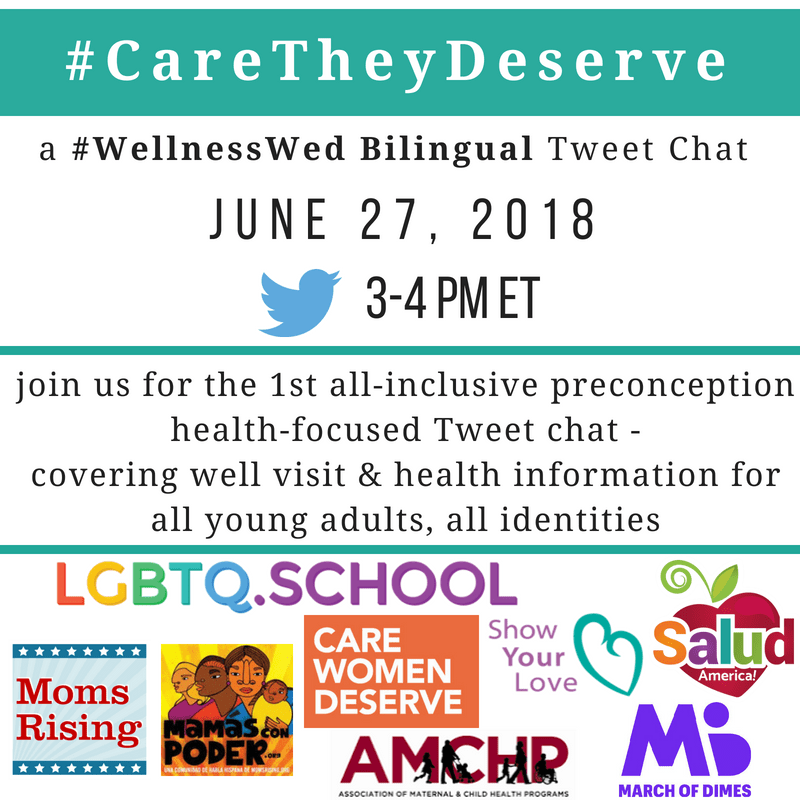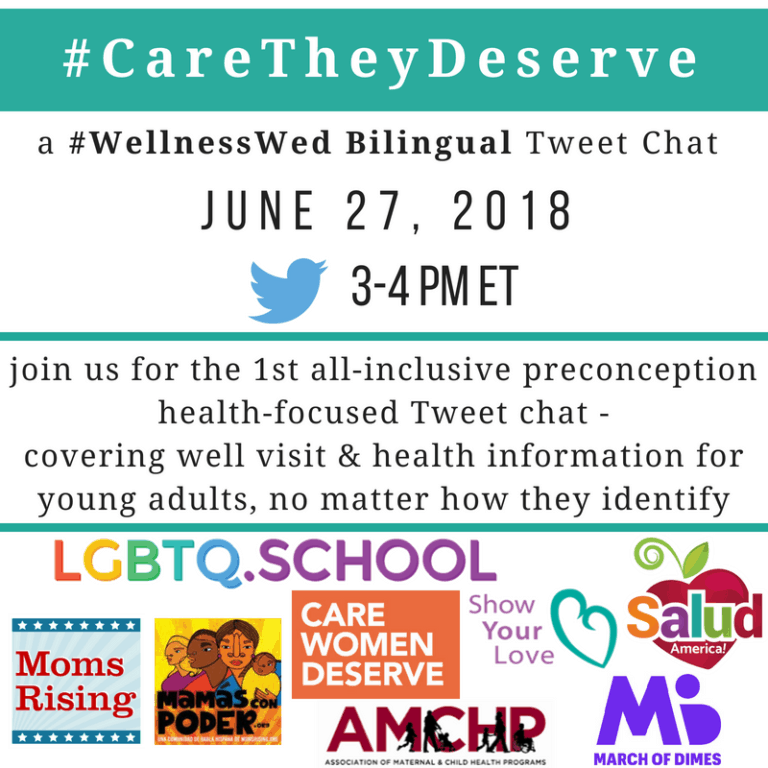 Join us for a bilingual #WellnessWed Tweet Chat on June 27th at 3pm ET. This is the FIRST all-inclusive preconception-focused Tweet chat!
Join us for a bilingual #WellnessWed Tweet Chat on June 27th at 3pm ET. This is the FIRST all-inclusive preconception-focused Tweet chat!
- Hashtag: #CareTheyDeserve — A #WellnessWed Chat
- The What: Join us for a #CareTheyDeserve Tweet Chat, where we’ll be discussing how a person’s health can impact their future and the future of the next generation.
- The WHY: June is #MensHealthMonth. #PrideWeek is also celebrated: an important time to discuss ways we can build more inclusive, welcoming healthcare conversations and environments for all people – however they identify.
- Moderator: National Preconception Health and Health Care Initiative
- The Panel: Gender Sexuality LGBTQ School, March of Dimes, Nacersano, Care Women Deserve, MomsRising, AMCHP, Salud America
I know this is a lot of questions; it will definitely be a quick moving chat! Lots to cover.
- What’s an annual wellness visit? What’s the difference in care for women, men, trans or gender non-conforming (GNC), and LGB people?
- How might health systems or processes improve to better appropriately screen and engage with ALL young adults?
- How might we share preconception health messages in a culturally relevant way so ALL are included?
- In our reproductive and preconception health dialogues, why is it important that we consider gender identity and sexual orientation?
- How can men and masculine-of-center folks be more engaged in sexual health conversations (contraception, family planning, STI screening)?
- How can young adults support their partner to take more responsibility in family/life planning + preconception care?
- Cisgender describes someone whose gender identity aligns with their sex assigned at birth. How does a cis-man’s fertility differ from a cis woman’s? How does this differ among LGBTQ identities?
- How can we change society and the media’s paternalistic and cisheteronormative framing of gender and familial roles in family and sexual health?
- How can we ensure inclusion of diverse identities when discussing sexual health & shared responsibility?
- How do we elevate access to reproductive healthcare for communities with historically less access to care? (i.e. low income, undocumented, non-English speaking, etc.)?
- What resources are available to learn about preconception health? Where can young adults find accessible support and services that align with their diverse needs and identities?
Bonus questions:
- What can we do to accommodate the needs of survivors of violence or trauma in providing safe/trauma-informed reproductive healthcare?
- How can we include people of diverse body types (disabled and fat folks) in the discussion about reproductive health?
